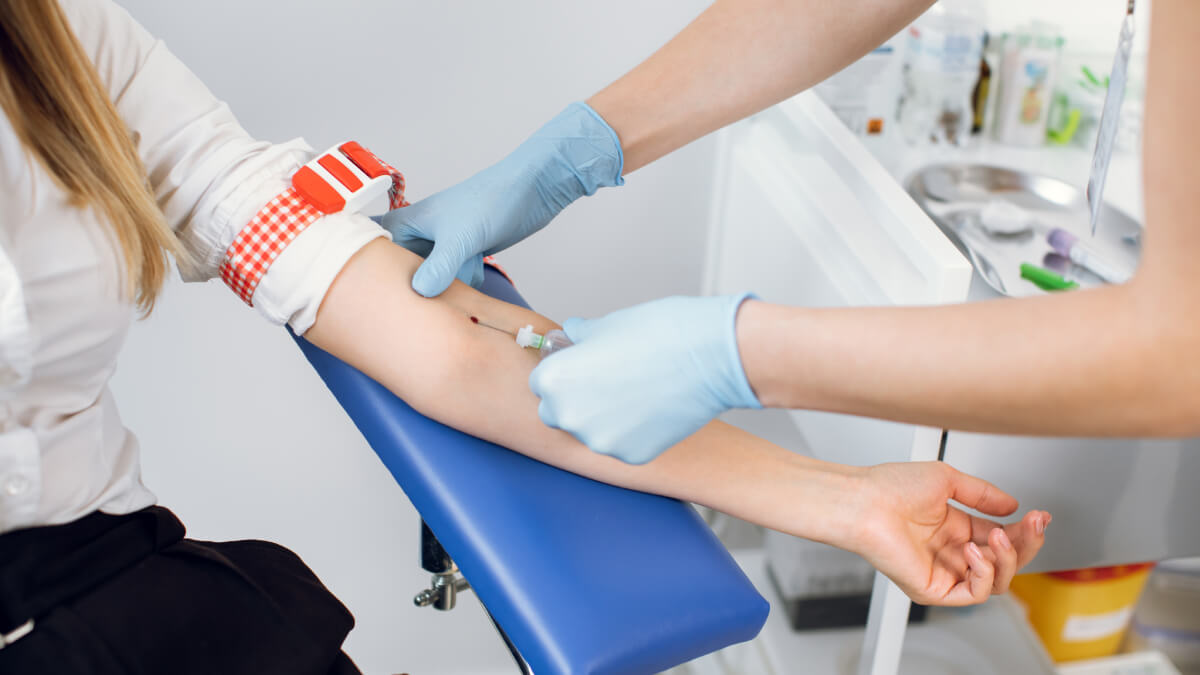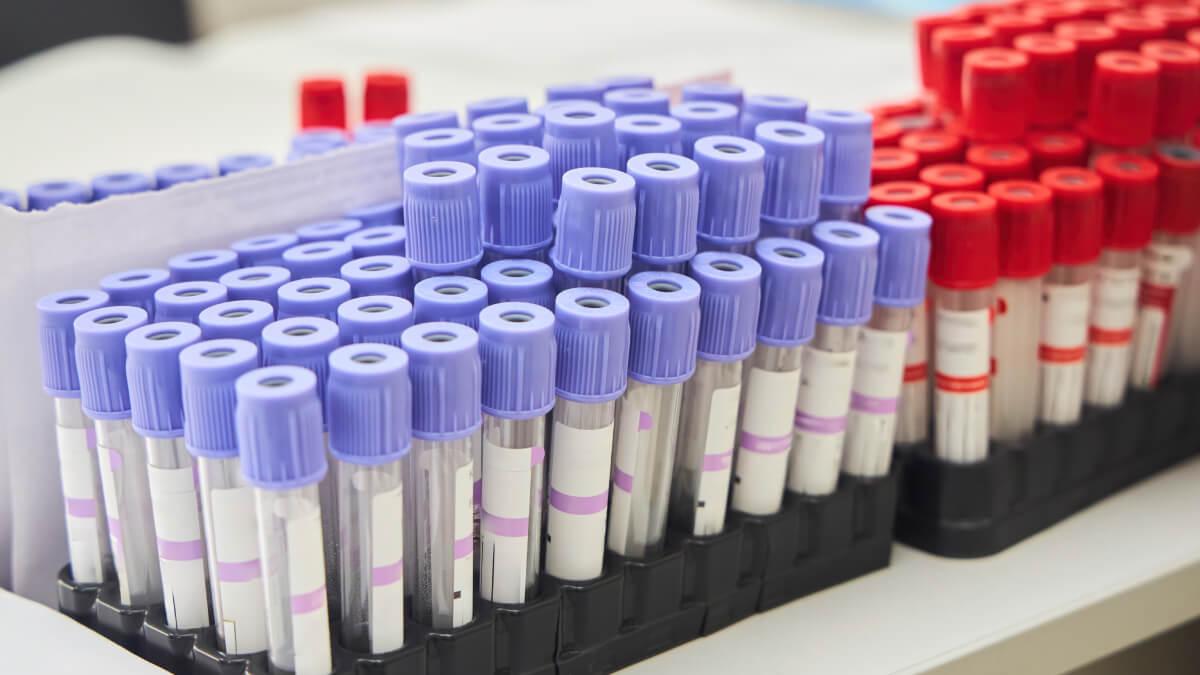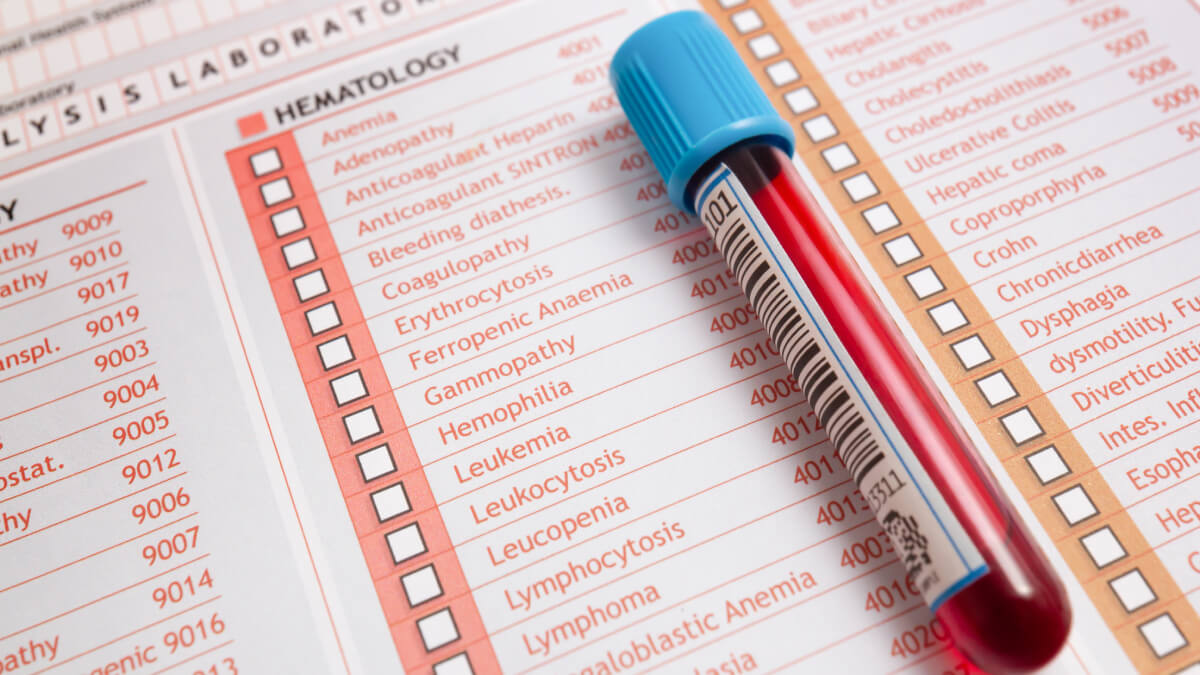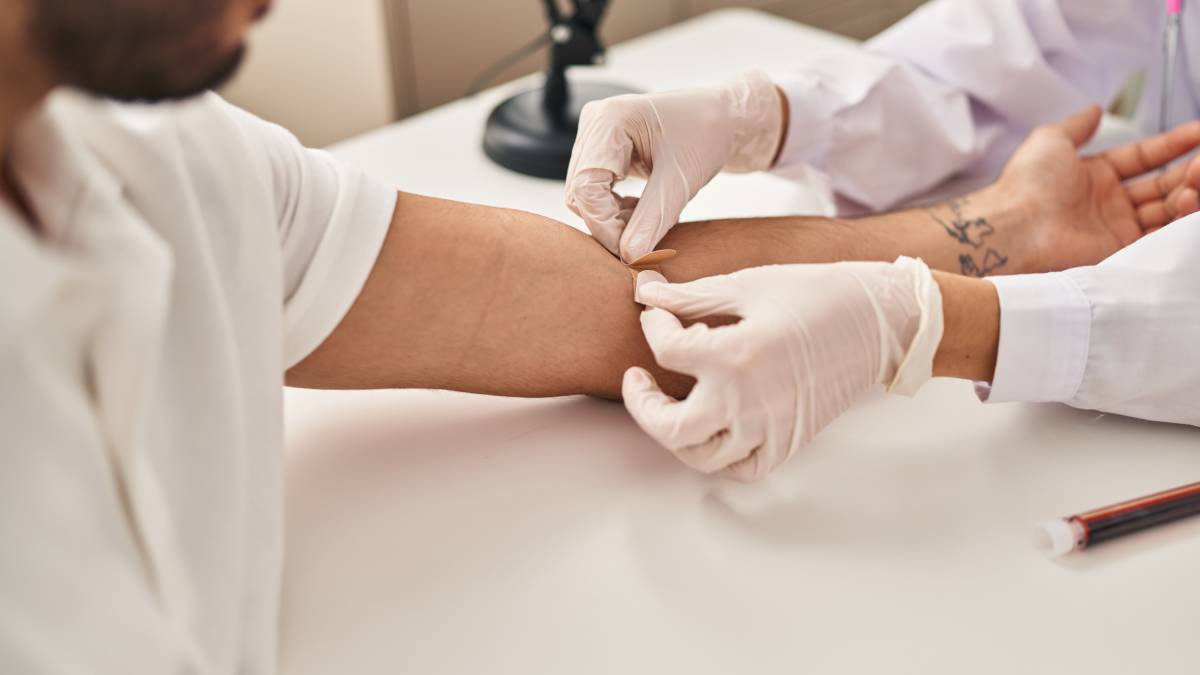Blood tests are one of the easiest ways you and your Doctor can get more information about what is going on inside your body. The information they provide is so important that a staggering 1.12 billion blood tests are performed yearly in England alone – roughly 20 per person. Despite these huge numbers, many people are unaware of how insightful a blood test can be. So, in this article, we will be using our expertise as a leading private GP in Milton Keynes to answer the question, ‘What can a blood test show?’.
What Can A Blood Test Show And How Quickly?
Many people associate blood tests with illness, but their insights are just as important when you are feeling fit and healthy. From vitamin levels to genetic conditions, a blood test will highlight abnormalities and inconsistencies you can act upon to remain as healthy as possible. Keep reading to learn all about the different types of blood tests and how they can help you better understand your body.
- Types Of Blood Tests
- When Should I Have A Blood Test?
- What Happens During A Blood Test?
- Can A Blood Test Detect Cancer?
- Can A Blood Test Detect Pregnancy?
- How Long Do Blood Test Results Take?

Types Of Blood Tests
There are many different types of blood tests, each serving a different purpose. We have outlined some of the most common tests below:
Full Blood Count (FBC)
A FBC is more of a routine test that checks the ten different components of every major cell in your blood: white blood cells, red blood cells, and platelets. This test can help diagnose blood cancer and immune system disorders, among other things. Some of the most important components measured in this test are:
- Red Blood Cells: Responsible for carrying oxygen throughout the body.
- White Blood Cells: The immune system cells in the blood.
- Platelets: Substances that control the clotting of blood.
- Haemoglobin: Protein in red blood cells that carries oxygen to organs and tissues and carbon dioxide back to the lungs.
- Hematocrit: Percentage of blood made of red blood cells.
Biochemistry Profile (BP)
Abnormal results may indicate kidney disease, diabetes, or electrolyte imbalances. This test checks for levels of eight compounds in the blood:
- Calcium
- Glucose
- Sodium
- Potassium
- Bicarbonate
- Chloride
- Blood urea nitrogen (BUN)
- Creatinine

Liver Function Test (LFT)
An LFT checks proteins and substances related to liver function, like albumin, bilirubin, and alkaline phosphate. Abnormal levels of these components may indicate malnourishment, liver damage, and gallbladder inflammation, among other issues.
Lipid Panel
This test checks levels of two types of cholesterol:
- High-density lipoprotein (HDL), or ‘good’ cholesterol
- Low-density lipoprotein (LDL), or ‘bad’ cholesterol
HDL removes harmful substances from your blood and helps the liver break them into waste. LDL can cause plaque to develop in your arteries, increasing your risk of heart disease.
Thyroid Panel
A thyroid panel measures your thyroid’s performance in response to hormones like:
- Triiodothyronine (T3): Along with T4, this regulates your heart rate and body temperature.
- Thyroxine (T4): Along with T3, this regulates your metabolism and how you grow.
- Thyroid-stimulating hormone (TSH): This helps regulate the levels of hormones your thyroid releases.
Abnormal levels of these hormones can indicate low protein levels and thyroid growth disorders, among other issues.

When Should I Have A Blood Test?
Blood tests paint a clear picture of your overall health, so there is never a bad time to get one booked in. However, these are some of the most common scenarios where a blood test may be especially beneficial:
- Your GP Recommends Screening Tests: Screening tests are done before you display any symptoms associated with an illness. Your GP may recommend them if you’re at risk of developing conditions like cancer. Blood tests are a key part of these screening tests.
- You Feel Unwell: If you have developed symptoms, your GP may order blood tests to help diagnose the issue.
- You’re Receiving Treatment For A Medical Condition: Your GP may use regular blood tests to assess whether the treatment is working.
- You’re Due An Annual Health Check: An annual health check is a very effective way to stay on top of your overall health. Blood tests like a CBC and CMP are key parts of these checks.

What Happens During A Blood Test?
For many, blood tests are a daunting prospect. However, they are usually over in a matter of minutes. Depending on the context, the test will be carried out by a Doctor, nurse or phlebotomist. For some blood tests, you may be asked to avoid eating or drinking anything (apart from water) for up to 12 hours and to stop taking certain medications. It is important to follow the instructions you are given as it may affect the test result and mean it needs to be delayed or carried out again.
Here’s what to expect during a blood test:
- The person taking your blood will tightly wrap a tourniquet around your upper arm. This helps to bring the veins to the surface.
- The skin around the vein is cleaned with a sterile alcohol wipe.
- A small needle is inserted into the vein. If the vein is fragile or difficult to find, a different type of needle called a ‘butterfly’ is inserted into a small vein in the back of your hand.
- The blood will flow into a small bottle at the base of the needle. If you are having multiple tests, the bottle will be replaced once full with an empty one for the next test. Each bottle has a different coloured top to show which test it is for.
- Once all the bottles are full, the needle is removed, and a piece of cotton wool or plaster will be put where the blood was taken to catch any bleeding. Bleeding usually stops very quickly.

Can A Blood Test Detect Cancer?
Blood tests are one of the most effective tools available in detecting cancer. Their results can help doctors diagnose, stage and manage cancer. However, an official diagnosis usually requires more than just blood tests. Blood cancers like Hodgkin lymphoma and leukaemia are among the most common cancers picked up by blood tests.
There are three main types of cancer blood tests:
- FBC: A FBC effectively detects blood or immune system cancers but cannot detect solid organ cancers. It also helps your Doctor understand how your body responds to treatment and whether the cancer has spread to your bone marrow.
- Tumour Marker Blood Tests: These tests identify certain chemicals released into your bloodstream every day. High levels of these chemicals in the blood can be a sign of cancer. They are effective in identifying ovarian, pancreatic, and prostate cancer, among others.
- Blood Protein Tests: These tests check for abnormal protein levels in your blood. High protein levels could point to certain types of cancer (mostly blood cancers like leukaemia, lymphoma and multiple myeloma).

Can A Blood Test Detect Pregnancy?
A blood test can detect pregnancy as early as 11 days after ovulation, making it the earliest detection method available. Like most other blood tests, your Doctor will draw blood from a vein in your arm before sending this blood to a laboratory for testing. Sample analysis usually takes a couple of days. Blood test results are about 99 per cent accurate and can detect lower amounts of human chorionic gonadotropin than urine pregnancy tests.

How Long Do Blood Test Results Take?
It can take anywhere from a few days to a few weeks to get your blood test results back. The timeline is largely dependent on the type of test and the urgency of the results. Once a sample of your blood is collected, it goes through a rigorous testing process to extract any valuable information. Samples are examined by machines and biomedical scientists to ensure nothing is missed.
Take a look at the full process, from sample collection to delivering the results, below:
Book Your Blood Test
It is clear to see blood tests are among the most valuable tools available in diagnosing illnesses, detecting biological changes, and painting a holistic picture of a patient’s health. With so many tests available and such a rigorous testing process, they have the potential to help with a wide range of health issues. So, if you are interested in a blood test, book a private GP appointment in Milton Keynes with Private Doctors MK. Our expert team would be more than happy to welcome you to our clinic.




